Hard of Hearing on the Yoga Mat
The Hearing Husband and I sat on individual floor mats, waiting for the instructor to arrive for our first-ever yoga class. It was an introductory session offered by our fitness center and we thought why not?
I was about to learn why not.
Entering the room, the instructor lowered the lights, and as he walked to his mat in the semi-gloom, his silhouette made him look like Aladdin. When I saw him more clearly, I realized it wasAladdin, complete with turban, tunic, baggy pants and slippers with turned up toes. He was mesmerizingly beautiful, until I saw his facial glory – an exotic mustache that covered his lips and spread sideways across his face, ending in elaborate curls near his ears.
Panic. It was dark, there was a mustache and the instructor was going to start saying strange words – a speechreader’s nightmare. Then it got worse.
“Close your eyes,” said Aladdin.
A class that was supposed to introduce us to a healing, calming, strengthening and tension-relieving discipline was stressing me out. Before we even started. You can’t tell a HoH (hard of hearing), a person with hearing loss, to close our eyes, then continue talking and expect to us to relax. We just don’t do that. Years before, friends talked me into a session on creative visualization. We had to lie on our backs with eyes closed, while the facilitator droned on in a soft voice that I would not have understood even with my eyes wide open. So I went to sleep. That was a veryrelaxing session for me.
I am writing this from San Jose, California, where we’re visiting the Hearing Husband’s son and his family. Our daughter-in-law Kristina just returned from a five-day yoga retreat, feeling refreshed and strong. Although I’m reluctant to try it again, especially hot yoga, I’d like to have what Kristina says is the main benefit – finding one’s drishti, a focus that is both internal and external, and using it in other areas of life. But because I work so hard to protect my expensive hearing aids from damaging moisture, I know the only thing I could focus on during an hour of contortions would be on how my technology will survive its thick steam bath.
Fortunately, hot yoga is just one of eight major types of yoga, and practitioners can try different classes to find a style – and instructor – comfortable for them. About 20 million Americans (8.7% of the adult population) over the age of 18 practiced yoga in 2011, almost a 25% increase from 2008, according to a 2012 study. And it turns out that I’m here in the Yoga Capital of the USA: according to the marketing firm GFK MRI, the residents of the San Francisco-Oakland-San Jose area are 59% more likely to do yoga than the general population.
It must be something in the air. When I saw the Hearing Husband doing what looked like a yoga stretch on the back lawn, I decided it was time to reach out to my Facebook hearing loss community: Do any of you with hearing loss do yoga? Tried yoga and couldn’t hear? Find that yoga helps calm your frustrations and helps with dealing with hearing loss?
The response was swift. People with hearing loss go to yoga for all the standard reasons – flexibility, strength, dealing with aches and pains, and stress reduction. Several said that yoga helped them deal with tinnitus, although one person found it to be worse during meditation. Many shared similar challenges – discomfort with being asked to close their eyes, inability to understand the instructor, and issues with personal hearing technology, such as keeping cochlear implant processors and hearing aids from falling off or out.
Cheri Perazzoli from Seattle offered a wonderful synopsis of the key challenges, fears and solutions.
“I love yoga. When I got down to 90 lbs the healthcare experts said: “You should do yoga”. Great advice, but how do you LEARN yoga when you are a HOH? How do you relax and focus while you are straining to hear? On top of that, all the positions sound alike: you’ve got the asanas – darniikasana, the pranayama, the sukhasana, the tadasana – just say Mountain pose already. Desperate, I hired a wonderful private instructor who walked me through the basics. On to Bikram, a specific routine! I studied the positions before class and arrived to find the spot directly in front of the instructor open (because it was the hottest spot in the entire studio). Bikram works if you can manage the heat, but it’s not the same kind of wonderful relaxing yoga with meditation. Today, I’m hoping to convince local studios to install a hearing loop! In the meantime, I do yoga at home with a video and use my TV loop. But I miss the routine and shared experience of a regular yoga practice.”
Understanding the yoga instructor is the most common barrier for many people:
- I never close my eyes in public. I want to be aware of what is happening around me.
- It was a challenge trying to lipread the yoga instructor while in a downward dog pose.
- I’m not fond of trying to copy the person next to me, as it defeats the purpose.
- I just look at the person in front of me or the teacher and listen at the same time.
- The teacher knows I don’t like to close my eyes because I can’t hear, so I peek. But the relaxation and arthritis help that I get from yoga make it worth the effort.
- It would be amazing if yoga studios were equipped with hearing loops.
- I basically learn the routine from memory to know what positions to be in. If the routine changes, I’m lost.
- I looked up the pattern of what the instructor says, and that helps during the class.
- I speak with the instructor beforehand. One instructor walks close to me so I can hear. Apparently looking up while doing poses isn’t good for your poses and neck. I do the same kind of yoga (hot yoga), so now I know the poses. By the way, it’s too hard to be relaxing.
- I always ask the instructor to wear the microphone for my FM System. I think I hear the instructor better than the other participants.
- For yoga at home, try online sites www.deafyoga.org and www.yogapah.com, and yoga DVDs and books.
My friend Linda Wolynetz says, “It is hard work – damn hard work. But the rewards of yoga and meditation are well worth the struggle.” So, since I”m here in the yoga capital, I’ll join the Hearing Husband on the lawn and maybe I’ll try a downward dog. Whatever that is.
Original article by Gael Hannan, Editor. 21 July 2014, HearingHealthMatters.org
Reproduced with kind permission of HHTM

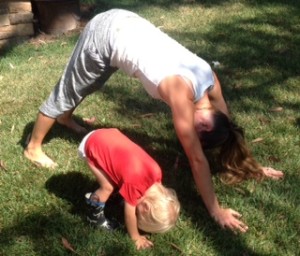
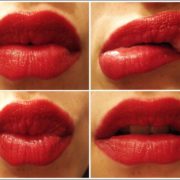


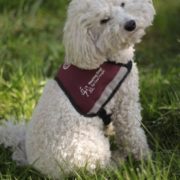

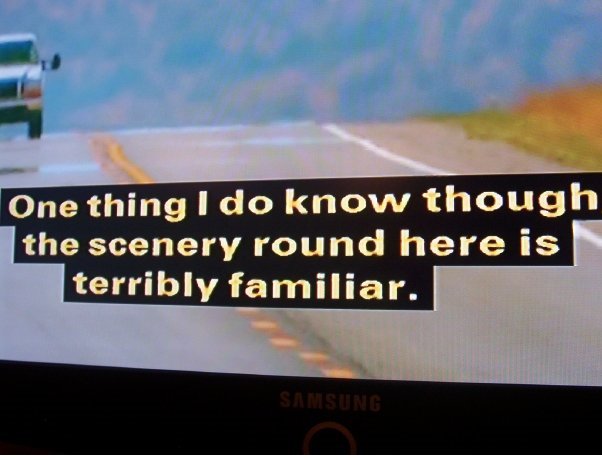

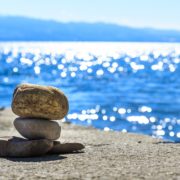

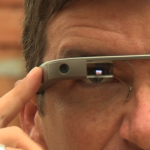
Leave a Reply
Want to join the discussion?Feel free to contribute!